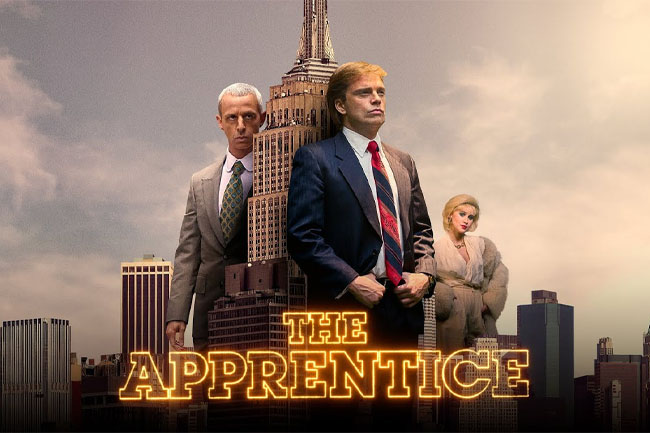When a 13-year-old is accused of the murder of a classmate, his family, therapist and the detective in charge are all left asking what really happened. Digital editor Dan Jensen shares his thoughts on the heart-wrenching Netflix series that has people talking, Adolescence.
BEFORE GETTING started with this review, it’s important to warn everyone that it’s impossible to talk about Adolescence without minor spoilers. If you want to go into this series as blindly as possible (did Jamie really commit the murder, or has he been wrongly accused?), then go watch the show and come back here.
Adolescence is a four-part series that tells the story of a 13-year-old boy, Jamie Miller (played by phenomenal newcomer, Owen Cooper), who has been accused of the stabbing murder of a female schoolmate, Katie Leonard. It deals with what motivates male violence, how social media can brainwash our kids and how family violence begets violence. And it’s extremely powerful stuff.
The first episode deals with Jamie’s arrest and questioning over the murder. Accompanied by his parents, Eddie (played by show creator and co-writer Stephen Graham) and Manda (Christine Tremarco), Jamie is questioned by detectives Luke Bascombe (Ashley Walters) and Misha Frank (Faye Marsay), who arrested him earlier that morning. It’s revealed that Jamie had made sexually explicit comments towards female models on Instagram and that he had a connection with Katie, despite his denial.
But what comes at the end of the first episode hits like a freight train, when Jamie and Eddie are confronted with CCTV footage that no parent would ever want to see. And the ensuing reactions from both are heart-wrenching.
The second episode deals with the breakdown of the education system as Bascombe and Frank investigate Jamie’s school, questioning students for clues as to a motive or location of the murder weapon. The school is in chaos, with unruly students and teachers who have given up their fundamental duty of care towards the students.
Then comes the revelation that comments made by students on Instagram contain a hidden code buried in emojis that the police overlooked, one that gives some strong clues as to why Katie met her fate.
The third chapter has been applauded as one of the most compelling episodes of a TV show ever created. Child psychologist Briony Ariston (Erin Doherty) sits down for a chat with Jamie to prepare a pre-trial report on his mental health. Pretty much the entire episode is the two of them talking, with Jamie trying to gain the upper hand and domineer Ariston, leading to some shocking changes in character and rather violent outbursts.
As a testament to how tense the dialogue in the third part is, there’s a jump scare at one point. It’s that gripping. There are also further revelations as to Jamie’s mindset and his views on masculinity that further incriminate him.
Then we come to the fourth and final episode. Set over a year after the arrest, it deals with the Miller family’s struggle to accept things and handle grief. Their reputation has been tarnished by the townsfolk and their property is vandalised. But we also gain a better understanding of where Jamie’s pattern of male violence comes from as Eddie tries to accept his failure as a father.
On a technical level, the show is an absolute marvel. Every episode is filmed in one take and some of the camera work is incredibly inventive. One shot in the third episode goes from a ground-level hand-held shot to a soaring drone shot seamlessly. There are moments where one can’t help but mentally congratulate the camera operators involved.
While the one-shot technique is sometimes used as a gimmick, it’s an important part of telling this story. The first episode really gives the viewer the dizzying sensation of not only the shock of a sudden arrest but also the panic of the ensuing interrogation. The second episode puts you amid the chaos of the school. The third makes you feel like you’re in the room during the interview, the fly-on-the-wall sensation adding to the tension. And the finale builds sorrow as we become part of the Miller family and share their immense heartache.
Adolescence is more than a crime drama; it is a poignant social commentary on the vulnerabilities of youth in the digital age. The series lays bare the ease with which impressionable minds can be drawn into toxic online communities that promote misogyny and violence. It serves as a stark reminder of the potential dangers lurking in digital spaces and the imperative for vigilance among parents, educators and society at large.
The portrayal of Jamie's descent into the manosphere underscores the urgency of addressing issues related to cyberbullying, online harassment and the cultivation of toxic masculinity.
Beyond its critical acclaim, Adolescence has sparked important conversations about the influence of online culture on youth behaviour. Public figures, including British Prime Minister Keir Starmer, have acknowledged the show's impact, emphasising the need for educational reforms and parental awareness to combat the issues portrayed.
Adolescence is a compelling and thought-provoking series that not only entertains but also educates and challenges viewers to reflect on the complexities of modern adolescence. Its innovative storytelling, stellar performances and critical examination of pressing social issues make it a standout addition to Netflix's lineup.
As a viewer, it is an experience that lingers long after the credits roll, prompting introspection and dialogue. It’s essential viewing for everyone, but be warned — the emotional impact will hit so much harder if you’re a parent. Keep tissues on standby.
Adolescence is currently screening on Netflix.

You can follow digital editor Dan Jensen on Bluesky @danjensen.bsky.social or check out his podcast, Dan and Frankie Go To Hollywood. Follow Independent Australia on Bluesky @independentaus.bsky.social and on Facebook HERE.
 This work is licensed under a Creative Commons Attribution-NonCommercial-NoDerivs 3.0 Australia License
This work is licensed under a Creative Commons Attribution-NonCommercial-NoDerivs 3.0 Australia License
Support independent journalism Subscribe to IA.












